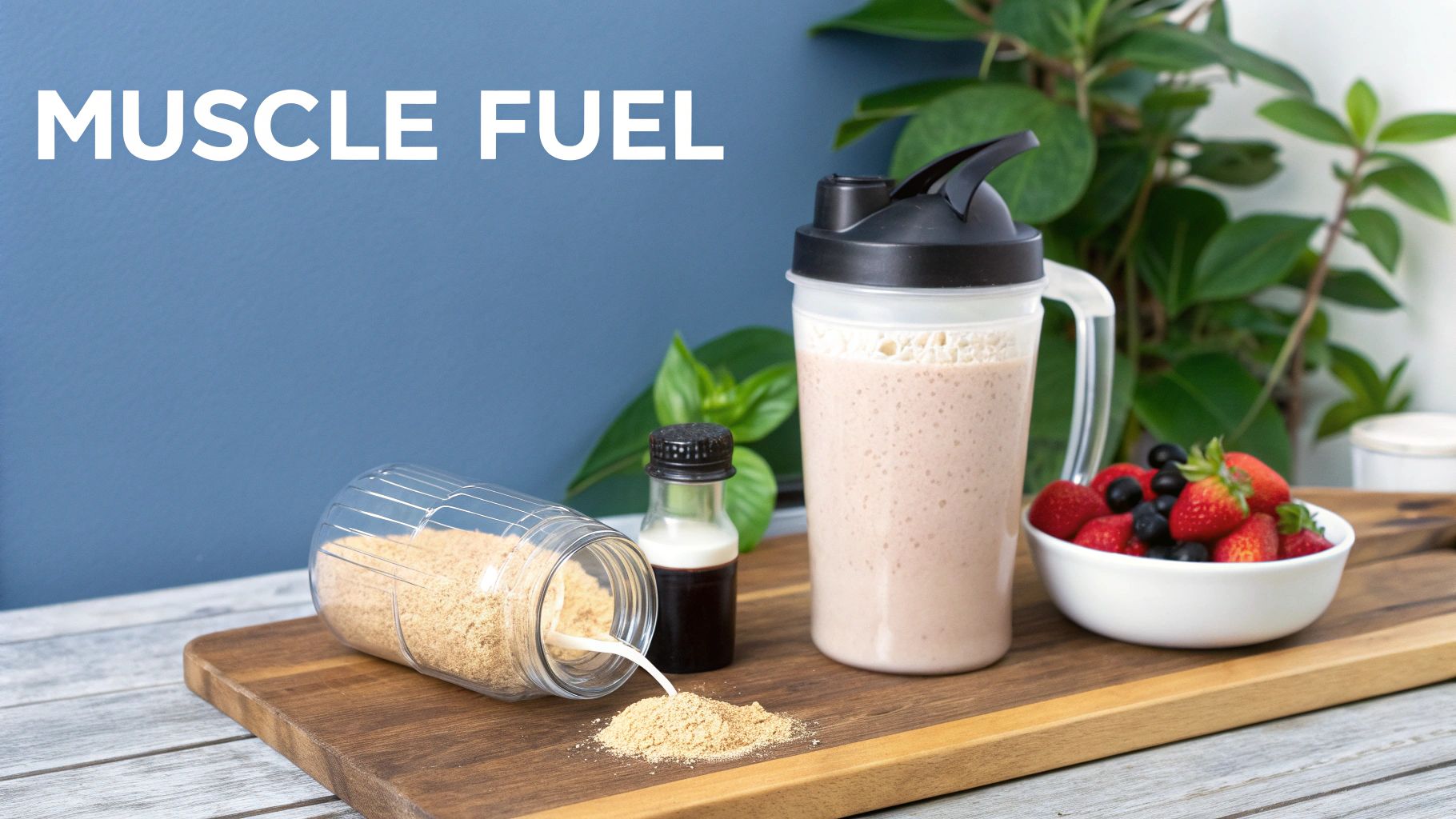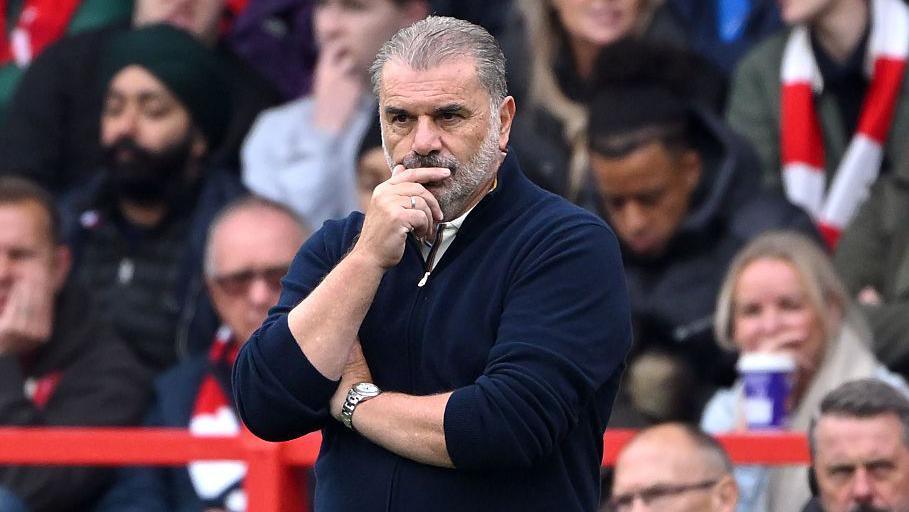Unlock Peak Recovery: Essential Post-Workout Nutrients Revealed
:max_bytes(150000):strip_icc()/Health-GettyImages-WhatToEatAfterWorkout-c65c20b1877a4b0ba16dcc0e4007198f.jpg)
Optimizing your post-workout nutrition is fundamental for not only supporting muscle recovery but also for building muscle, enhancing endurance, and achieving overall fitness goals. Choosing the appropriate fuel after exercise is crucial, and nutrition experts emphasize focusing on specific key nutrients to maximize these benefits.
A balanced snack or meal forms the cornerstone of effective post-workout fueling. The three primary macronutrients—protein, carbohydrates, and fats—each play a distinct yet interconnected role in the recovery process. Protein is paramount for muscle repair and growth, supplying the essential amino acids needed to mend exercise-induced muscle damage and foster new muscle development. Experts like Leisan Echols, MS, RDN, CSCS, highlight protein's direct role in muscle support. Post-workout protein intake recommendations generally range from 0.25 grams per kilogram of body weight (approximately 0.1134 grams per pound) or a dose between 20 and 40 grams, depending on individual body weight and physical activity intensity.

Photo Credit: Google
Carbohydrates are critical for replenishing glycogen stores, which are often depleted during exercise, especially intensive sessions. As the body’s preferred fuel source during physical activity, consuming carbohydrates post-workout helps restore these energy reserves in the muscles, vital for subsequent exercise performance.
Carbohydrates also stimulate the release of insulin, a hormone that facilitates the uptake of glucose and amino acids into muscle cells, further aiding recovery. Pairing carbohydrates with protein is particularly effective, as this combination has been shown to restore muscle glycogen more efficiently than carbohydrates alone, with insulin helping to deliver protein into muscle cells more effectively for stronger recovery.
Fats, while not always emphasized immediately post-workout, are important for overall health and long-term recovery. Healthy fat sources—such as avocados, nuts, olive oil, and fatty fish—provide essential fatty acids that support long-term energy, hormone production, and the absorption of fat-soluble vitamins (A, D, E, and K). Including moderate amounts of these fats after exercise can help reduce exercise-induced inflammation, support cellular repair, and boost general well-being. The key is to balance protein, carbohydrates, and fats according to individual needs and training demands for optimal recovery and sustained performance.
The ideal post-workout fuel varies based on personal goals and the type of training undertaken. For individuals aiming for muscle gain, balancing protein and carbohydrates is essential. Expert-approved options include grilled chicken breast with rice and roasted vegetables, a grain bowl topped with shrimp and vegetables, salmon with brown rice and broccoli, a protein smoothie (whey or pea protein, banana, almond butter), or Greek yogurt with berries and granola.
If the goal is weight loss, high-protein, calorie-controlled meals and snacks are recommended, such as an egg-white omelet with spinach and whole-grain toast, low-fat cottage cheese with sliced fruit, tuna salad and fruit, or a protein shake made with low-fat Greek yogurt, unsweetened almond milk, and frozen berries. For those engaged in endurance or cardio workouts, carbohydrate- and protein-rich meals are crucial for recovery, with examples including oatmeal topped with banana and peanut butter, pesto pasta with chicken, a quinoa bowl with black beans and roasted veggies, or whole-grain toast with nut butter and sliced apple.
Refueling after a workout is vital because exercise causes muscle fibers to break down, which is a natural part of building new muscle and increasing strength. Post-workout nutrition delivers the necessary nutrients for muscle repair and replenishes glycogen, the stored form of glucose that is the body’s primary energy source. As Echols notes, what you eat post-workout directly influences how well your body restores energy, repairs muscle, and adapts to exercise over time. Replenishing glycogen stores is especially critical for individuals undertaking strenuous or prolonged activity, as these workouts significantly deplete muscle glycogen, impacting endurance, performance, and recovery.
For most people, the overall balance of nutrients throughout the day holds more importance than consuming food within a very narrow post-workout window. If an immediate meal or snack isn't feasible, there's no need to stress; the focus should be on consuming a balanced meal or snack within approximately two hours after exercising, alongside ensuring optimal protein intake throughout the day. Studies suggest that combining resistance training with a diet providing around 1.6 to 3.3 grams of protein per kilogram of body weight (0.7-1.5 grams per pound) daily is most effective for muscle gain.
However, for elite athletes or those engaged in intensive exercise, nutrient timing can be more significant, with consuming protein and carbohydrates after intense training potentially optimizing recovery and muscle building. The timing also depends on when the last meal was consumed. If training fasted, such as first thing in the morning, immediate post-workout eating is recommended. For afternoon or evening workouts following a prior meal, refueling within 1 to 2 hours after strength training or 30–60 minutes after endurance or HIIT is advisable.

Photo Credit: Google
To maximize the benefits of post-workout meals, experts offer several tips: always pair protein and carbohydrates for superior recovery; prepare easy options like protein shakes, overnight oats, or Greek yogurt parfaits for quick fuel on busy days; opt for whole, nutrient-dense foods over highly processed alternatives when possible; prioritize a balanced diet and sufficient overall nutrient intake over strict timing for most individuals; and if immediate hunger isn't present, start with a lighter snack and follow up with a balanced meal later.
In conclusion, post-workout nutrition is a critical component of fitness that doesn't need to be overly complex. The core principle involves refueling after exercise with a strategic combination of protein, carbohydrates, and fluids to support muscle recovery, muscle building, and overall athletic performance.
You may also like...
Crystal Palace Captain Marc Guehi Rejects New Deal, Ignites Major Transfer Battle

The football transfer market is buzzing with activity as top clubs battle for key players. Crystal Palace's Marc Guéhi i...
Ange Postecoglou's Nottingham Forest Nightmare Ends Abruptly After Chelsea Rout

Ange Postecoglou's brief and challenging 39-day reign as Nottingham Forest head coach concluded with his dismissal follo...
Director's Vision: Michael Mann Hints at Groundbreaking AI Use for 'Heat 2'!

Director Michael Mann discussed his plans for "Heat 2," including potential AI use for de-aging, its move to Amazon MGM,...
Hollywood Shake-Up: Paramount Skydance Announces Mass Layoffs!

Paramount Skydance is initiating widespread job cuts this week, targeting approximately 2,000 U.S. roles as part of Davi...
Intocable Unveils Powerful Unity Message in 'Estamos Todos' Short Film

This week in Latin music saw Intocable release a poignant short film on migration and unity, while Fuerza Regida's Moise...
Prince Andrew's Royal Exile: Daughters Beatrice & Eugenie's Future Uncertain, Fergie Gets New Title!

Prince Andrew has relinquished his Royal titles and honours amid ongoing controversy surrounding his association with Je...
Nollywood Royalty Shaffy Bello Fuses Art & Style with Gbenga Artsmith

Gbenga Artsmith has released a new fashion editorial featuring actor Shaffy Bello, showcasing African-inspired accessori...
UNGA 2025 Power Dinner: Dr. Jatali Bellanton & Ex-President Sirleaf Command Attention

Dr. Jatali Bellanton hosted the inaugural Brilliant Minds Dinner Series during the UN General Assembly, honoring former ...
:max_bytes(150000):strip_icc()/Health-GettyImages-2155873012-8b607ac479324650932c5ea3d999c755.jpg)
:max_bytes(150000):strip_icc()/health-avocado-toast-vs-nut-butter-toast-template-1__1__720-83e7020e98004093a600d82ecd9bca2f.jpg)